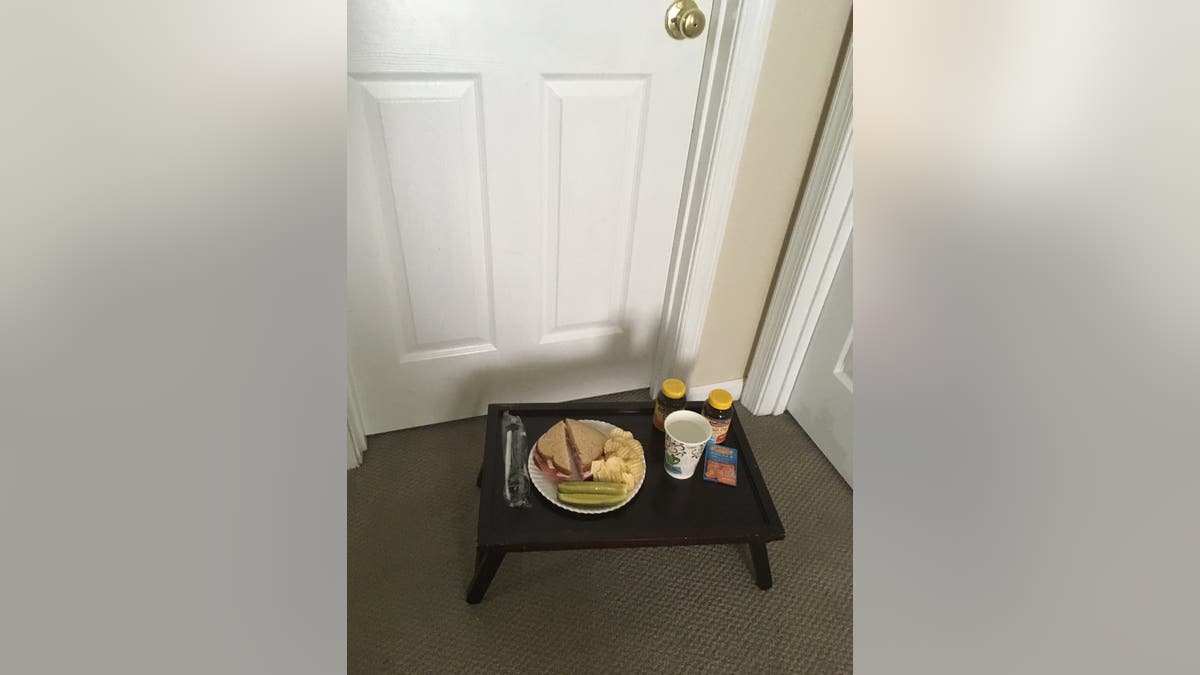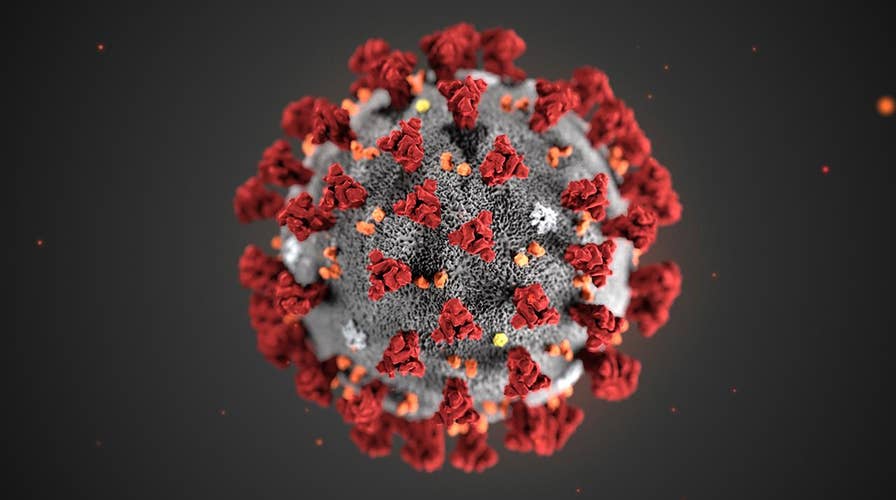FDA-approved coronavirus saliva test could be used at home: Dr. Marc Siegel
Fox News’ Dr. Marc Siegel provides insight into new coronavirus tests and which company is winning the vaccine race.
Coronavirus not only affects people physically, but health care experts say there appears to be a level of guilt experienced by some COVID-19 patients.
“Many individuals experience mixed emotions, including fear and guilt about infecting others," Rachel Potter, a licensed social worker at Mount Sinai – National Jewish Health Respiratory Institute, told Fox News. “In most cases, when we experience illness, we only have to focus on our health. However, because COVID is highly contagious, we must manage not only ourselves but the additional responsibility of potentially infecting those we love, especially those in a high-risk category.”
PRELIMINARY STUDY INVESTIGATES HOW CORONAVIRUS PARTICLES MAY TRAVEL IN CLASSROOMS, INDOOR AREAS
Barry Douglas knows just what Potter is talking about. Douglas, recently diagnosed with the novel coronavirus, told Fox News he had that same feeling of guilt when he became ill. “I felt lousy. I felt bad, but the anxiety of spreading the virus was worse,” he said.
The Maryland resident said no one in his immediate circle had the novel coronavirus and he was surprised when he suddenly felt sick after driving home from the beach where he would social distance with his family to get fresh air and check-in with one another.
“I could smell the wonderful corn field fertilizer in Maryland,” Douglas said sarcastically, knowing he’d welcome that smell now, after losing his sense of taste and smell since being infected nearly three weeks ago.
Douglas said he went to sleep that Sunday night and awoke around 3 a.m. with a horrific headache and a “clogged head” he told Fox News. Within hours the headache and congestion grew worse and eventually, he could not smell. Fearing the symptoms were COVID-19, he drove an hour to a rapid test clinic that morning.
“Positive,” Douglas shared. “I felt lousy. I began the drive home, racing Hurricane Isaias and dialing anyone I may have put in harm’s way.”
Douglas shared how his wife and children helped while trying to maintain a safe distance. Usual dinners together at the table were replaced with trays left in front of a closed-door for him to eat alone, afraid of spreading the disease to his loved ones while he wondered how badly the disease would progress.
“The uncertainty can get a bit overwhelming," he stated.

Family dinners at the table became trays left in front of closed door. (Barry Douglas)
The 55-year-old shared how thoughts would go from being worried about his own fate, with knowing people who died from coronavirus to worrying if he spread the virus that could potentially kill his own family members.
“I wouldn’t be able to live with myself,” he remarked. “I can’t thank my wife enough. She wasn’t sure if she was infected or going to get it but hung with me anyway. “
The guilt overtook Douglas so much that he requested his family stay at a family house and while he dealt with the disease alone, being virtually supported by his two physicians, Doctors Steve and Faranak Olexo, who continually checked on him. Douglas said, he’d rather be alone with the disease than know he gave it to his family members.
“This is a very common experience," Potter, who leads a support group for post-COVID patients and patients with respiratory issues in New York, told Fox News.
As for Douglas, he said he is overcoming guilt with faith and gratitude.
“I am grateful for all my family, friends, and prayers. My mom and dad called every day to comfort me, but I know was comforting them with any report of progress. Can’t thank my wife enough,” he said. He also said the support from contact tracers also helped him realize he wasn’t alone in his thoughts.
HOMEMADE CORONAVIRUS FACE MASKS SHOULD BE TWO OR THREE LAYERS TO STOP SPREAD OF VIRUS, STUDY FINDS
“The contact tracing team from Anne Arundel County was spectacular. They called frequently — every two days — to check on me and share symptoms and concerns from other patients,” he said.
For those coping with guilt during the coronavirus pandemic, Potter offered these tips:
- Recognize what you are doing (in this case maybe it is wearing a mask around family or only seeing people outside)
- Identify what you do and do not have control over
- Practice self-compassion
- Look for other ways to contribute/give back
- Normalize your experience (acknowledge if this is an appropriate situation to experience guilt and recognize that others have probably felt the same way)









































